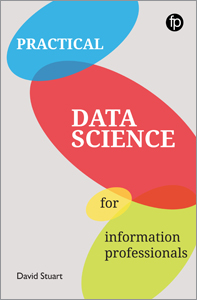
Practical Data Science for Information Professionals
Customers outside of North America (USA and Canada) should contact Facet Publishing for purchasing information.
Primary tabs
You don't need to be an ALA Member to purchase from the ALA Store, but you'll be asked to create an online account/profile during the checkout to proceed. This Web Account is for both Members and non-Members.
If you are Tax-Exempt, please verify that your account is currently set up as exempt before placing your order, as our new fulfillment center will need current documentation. Learn how to verify here.
- Description
- Table of Contents
- About the author
Practical Data Science for Information Professionals provides an accessible introduction to a potentially complex field, providing readers with an overview of data science and a framework for its application. It provides detailed examples and analysis on real data sets to explore the basics of the subject in three principle areas: clustering and social network analysis; predictions and forecasts; and text analysis and mining.
As well as highlighting a wealth of user-friendly data science tools, the book also includes some example code in two of the most popular programming languages (R and Python) to demonstrate the ease with which the information professional can move beyond the graphical user interface and achieve significant analysis with just a few lines of code. Readers will understand
- the growing importance of data science;
- the role of the information professional in data science; and
- some of the most important tools and methods that information professionals can use.
Bringing together the growing importance of data science and the increasing role of information professionals in the management and use of data, Practical Data Science for Information Professionals will provide a practical introduction to the topic specifically designed for the information community. It will appeal to librarians and information professionals all around the world, from large academic libraries to small research libraries. By focusing on the application of open source software, it aims to reduce barriers for readers to use the lessons learned within.
Preface
1 What is data science?
Data, information, knowledge, wisdom
Data everywhere
The data deserts
Data science
The potential of data science
From research data services to data science in libraries
Programming in libraries
Programming in this book
The structure of this book
2 Little data, big data
Big data
Data formats
Standalone files
Application programming interfaces
Unstructured data
Data sources
Data licences
3 The process of data science
Modelling the data science process
Frame the problem
Collect data
Transform and clean data
Analyse data
Visualise and communicate data
Frame a new problem
4 Tools for data analysis
Finding tools
Software for data science
Programming for data science
5 Clustering and social network analysis
Network graphs
Graph terminology
Network matrix
Visualisation
Network analysis
6 Predictions and forecasts
Predictions and forecasts beyond data science
Predictions in a world of (limited) data
Predicting and forecasting for information professionals
Statistical methodologies
7 Text analysis and mining
Text analysis and mining, and information professionals
Natural language processing
Keywords and n-grams
8 The future of data science and information
professionals
Eight challenges to data science
Ten steps to data science librarianship
The final word: play
References
Appendix – Programming concepts for data science
Variables, data types and other classes
Import libraries
Functions and methods
Loops and conditionals
Final words of advice
Further reading
Index
David Stuart
David Stuart is an independent information professional, Bibliometrics Officer at the University of St. Andrews and an Honorary Research Fellow at the University of Wolverhampton. He has published widely in peer-reviewed academic journals and professional journals on information science, metrics, and semantic web technologies and is author of a number of books, including Practical Ontologies for Information Professionals (2016), Facilitating Access to the Web of Data (2011) and Practical Data Science for Information Professionals (2020).


